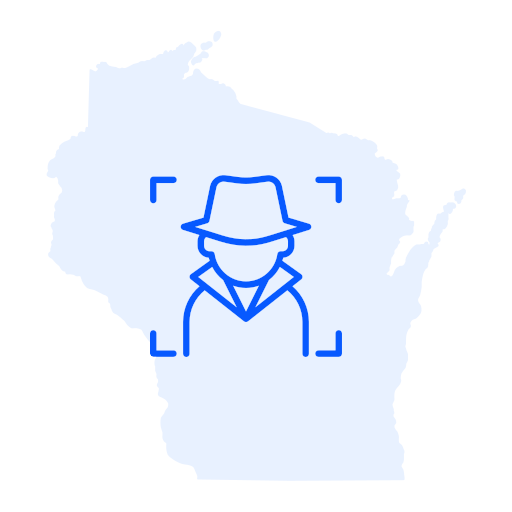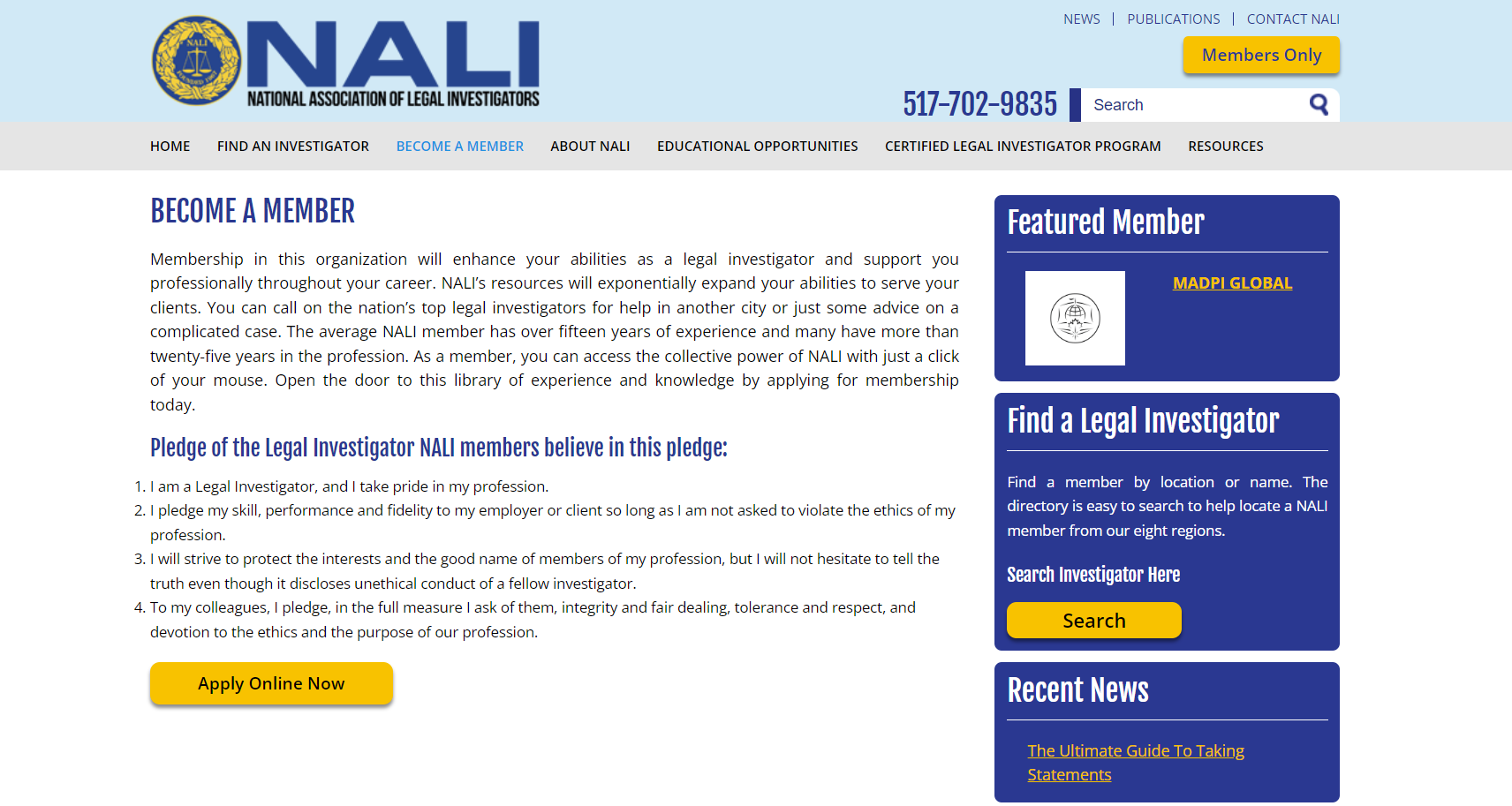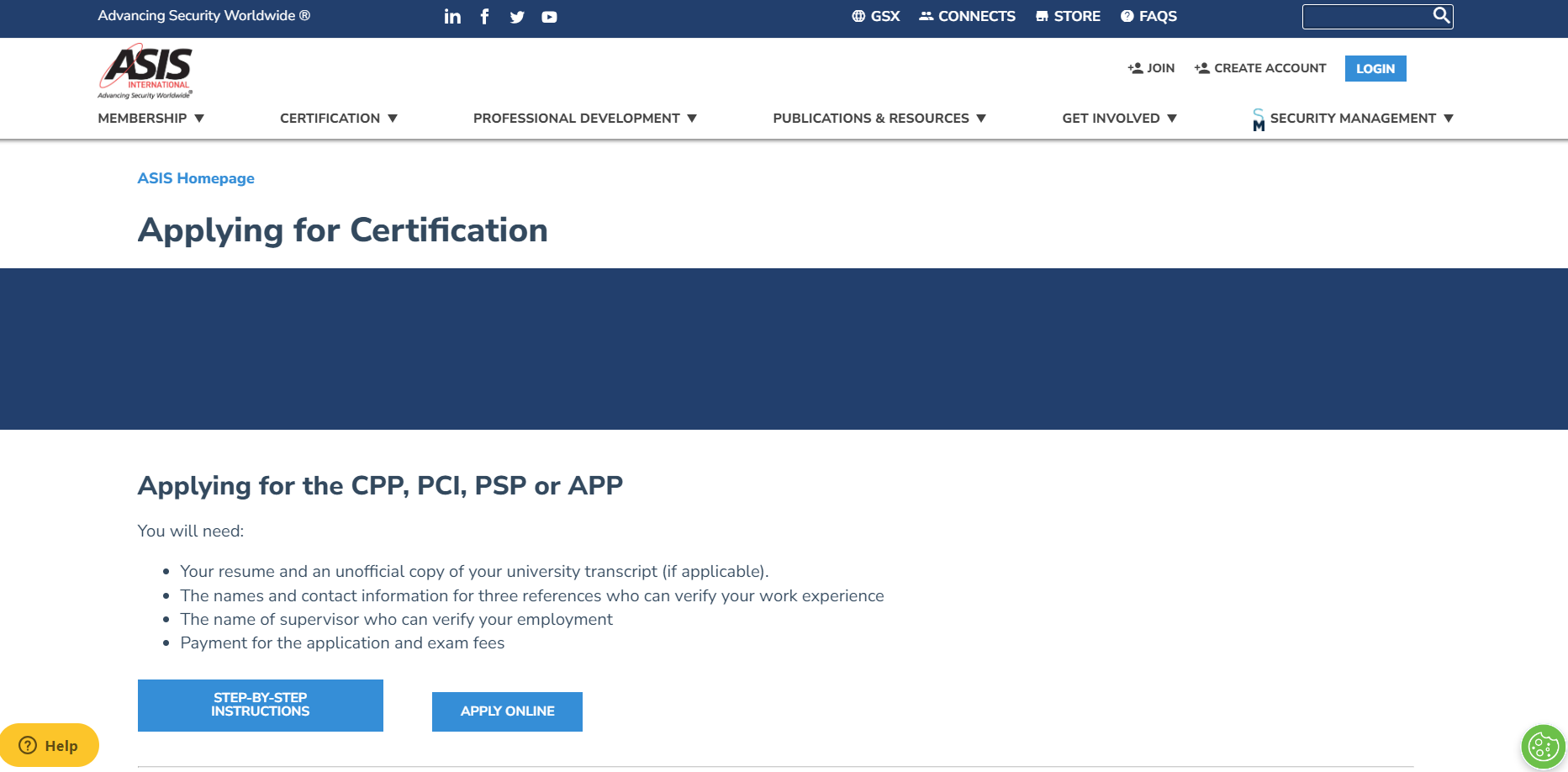
Suppose you’ve always been intrigued by the world of investigations and have a knack for unraveling mysteries. In that case, a career as a private investigator might be the perfect fit for you in Wisconsin. Private investigators play a crucial role in assisting individuals, businesses, and even law enforcement agencies in gathering information, uncovering facts, and solving cases. In addition to learning the ins and outs of investigation techniques, it is important to understand the legal aspects of running your own private investigation business.
Establishing an LLC in Wisconsin is popular for many private investigators as it provides legal protection and facilitates smooth business operations. This article will outline the steps you need to take to Become a Licensed Private Investigator in Wisconsin.
Webinarcare Editorial Team will help you gain knowledge through thorough research and market study. Before becoming a private investigator in Wisconsin, all the steps in this article must guide you.
On this page, you’ll learn about the following:
What is a Private investigator?
A private investigator in Wisconsin is a professional who conducts investigations, gathers information, and performs surveillance for individuals, businesses, and legal professionals. In Wisconsin, private investigators must be licensed by the Wisconsin Department of Safety and Professional Services – Private Detective/Security Agency Licensing to operate within Wisconsin legally. They often work on various cases, including civil matters, insurance fraud, background checks, infidelity, missing persons, etc. These professionals use their skills and expertise to collect evidence, analyze information, and provide their clients with valuable insights to help them make informed decisions or resolve disputes.
Embarking on a journey to become a private investigator in Wisconsin is like entering a maze of possibilities where every corner holds a potential clue. As you uncover the secrets tucked away in the shadows, remember to secure your own path by learning how to start an LLC in Wisconsin. Establishing a legal entity shields you from liabilities and empowers you to navigate the investigative landscape with professionalism.
– WEBINARCARE EDITORIAL TEAM
How to Become a Private Investigator in Wisconsin
Suppose you’re considering becoming a private investigator in Wisconsin. In that case, it’s essential to understand the steps and requirements involved in obtaining your license and starting your professional journey. This step-by-step guide will walk you through becoming a private investigator in Wisconsin.
Step 1: Research The Requirements
Each state has its own set of requirements and regulations for becoming a licensed private investigator. The agency responsible for regulating private investigators in Wisconsin is the Wisconsin Department of Safety and Professional Services – Private Detective/Security Agency Licensing. Familiarizing yourself with the specific requirements for obtaining a private investigator license in Wisconsin is important.
Some common requirements for obtaining a PI license in Wisconsin include:
- Age: Wisconsin requires individuals to be 18 or 21 to apply for a Private Investigator license.
- Citizenship: Applicants must be U.S. citizens or legal residents.
- Education: Wisconsin requires a high school diploma or GED, while others may require a degree in criminal justice or a related field.
- Experience: Wisconsin requires years of experience in law enforcement, security, or other related fields.
- Background Check: Applicants will likely need to pass a background check, which may include fingerprinting and a criminal history check.
- Licensing Exam: Wisconsin requires applicants to pass a licensing exam that tests their knowledge of state laws, regulations, and general investigative techniques.
Becoming a private investigator is ideal if you want to start an LLC for your security company in Wisconsin. We recommend these LLC Formation Services in Wisconsin if you plan to form one.
Step 2: Obtain Education and Experience
As mentioned earlier, Wisconsin requires a certain level of education and experience to become a licensed private investigator. There are several educational paths you can pursue to prepare for a career as a private investigator, including:
- Degree Programs: Some Wisconsin colleges and universities offer associate’s or bachelor’s degree programs in criminal justice, forensic science, or a related field. These programs typically cover criminal law, investigation techniques, and crime scene analysis.
- Certificate Programs: Wisconsin community colleges and vocational schools offer certificate programs in private investigation or a related field. These programs generally take less time to complete than a degree program and focus on specific skills and knowledge needed for a career in private investigation.
- Online Courses: Numerous online courses and training programs cover various aspects of private investigation. These courses can be a convenient and affordable way to gain knowledge and skills in the field.
In addition to formal education, gaining practical experience in a related field can be invaluable for aspiring private investigators. Some possible avenues for gaining relevant experience include:
- Law Enforcement: Working in law enforcement, such as a police officer or detective, can provide valuable experience in investigation and surveillance techniques.
- Military Service: Military personnel, particularly those in intelligence or security roles, often develop skills that can be transferred to a career as a private investigator.
- Security Work: Working as a security guard or in corporate security can provide experience in surveillance, risk assessment, and incident response.
- Legal Field: Paralegals and legal assistants often conduct research and investigations for attorneys, which can provide a foundation for a career as a PI.
Here is the breakdown of the education and practical experience in becoming a licensed private investigator in Wisconsin.
| Education | Experience |
| Degree Programs | Law Enforcement |
| Certificate Programs | Military Service |
| Online Courses | Security Work |
| Legal Field |
Step 3: Apply For a Private Investigator License
Once you have met the education and experience requirements in Wisconsin, you can begin applying for a private investigator license in Wisconsin. This typically involves applying to the Wisconsin Department of Safety and Professional Services – Private Detective/Security Agency Licensing and any required documentation, fees, and proof of insurance.
In Wisconsin, the application process may include the following steps:
1. Complete the Private Investigator License Application
Obtain and complete the PI license application from the Wisconsin Department of Safety and Professional Services – Private Detective/Security Agency Licensing. Be sure to provide accurate and complete information, as any discrepancies could result in delays or denial of your application.
2. Submit the Required Documentation
Along with your completed application, you must submit various documents, such as proof of education and experience, a copy of your driver’s license, and any required affidavits or forms.
3. Pay Application and Licensing Fees
There may be fees associated with the application and licensing process in Wisconsin. Be sure to include these fees when submitting your application. The usual fee for the application and licensing process for the Wisconsin private investigator costs $200.
4. Obtain Liability Insurance
Wisconsin doesn’t require obtaining liability insurance when you become a Wisconsin private investigator, but it is safe for you to have it.
5. Pass the Licensing Exam
If required in Wisconsin, you must pass a licensing exam that tests your knowledge of state laws, regulations, and general investigative techniques.
6. Background Check and Fingerprinting
As part of the application process, you will likely need to undergo a background check and submit fingerprints to the Wisconsin Department of Safety and Professional Services – Private Detective/Security Agency Licensing.
Step 4: Maintain Your Private Investigator License
Once you have obtained your private investigator license in Wisconsin, it is important to maintain your license in good standing. This may involve completing continuing education requirements, renewing your license periodically, and adhering to any regulations and ethical standards set forth by the Wisconsin Department of Safety and Professional Services – Private Detective/Security Agency Licensing. When you become a fully-fledged Wisconsin private investigator, it is best to consider other certifications for your career development.
Below are two professional credential options that private investigators can pursue.
Certified Legal Investigator
The Certified Legal Investigator (CLI)® is a professional certification program offered by the National Association of Legal Investigators (NALI). It is designed for private investigators who specialize in legal investigations and wish to demonstrate proficiency and expertise in the field.

To become a Certified Legal Investigator (CLI)®, candidates must meet certain eligibility requirements, including having a minimum of five years of investigative experience and a certain number of those years working on legal investigations. Candidates must also pass a written examination that covers topics such as legal ethics, civil and criminal law, evidence collection and preservation, and witness interviews.
By earning the CLI certification, investigators show they have high competency and professionalism in legal investigations and adhere to the highest standards of ethics and integrity. The legal community recognizes the certification and can help investigators gain credibility and recognition in the field.
You can visit NALI’s CLI requirement page for the most up-to-date certification requirements.
Professional Certified Investigator (PCI)®
The Professional Certified Investigator (PCI)® is a professional certification program offered by ASIS International, a global association for security management professionals. The certification is designed for private investigators and security professionals conducting corporate, government, or non-profit investigations.

To become a Professional Certified Investigator (PCI)®, candidates must meet certain eligibility requirements, including having a minimum of five years of investigative experience and a certain number of those years working in a supervisory or management role. Candidates must also pass a written examination that covers topics such as investigation planning, case management, evidence collection and preservation, and legal and ethical considerations.
By earning the PCI certification, investigators show they have high competency and professionalism when conducting investigations and adhere to the highest standards of ethics and integrity. The certification is recognized by employers, clients, and industry peers and can help investigators advance their careers and gain credibility in the field.
You can visit ASIS’ eligibility requirements page for the most up-to-date information regarding PCI certification requirements.
Recommended: Begin your journey to become a private investigator with the first bold step by using Legalzoom’s LLC formation services. When you start an LLC with Legalzoom, you’re not just making a business transaction, you’re carving out a future in the security industry. Even making your own security company, it is best to hire an LLC services. That’s why we recommend –
– LegalZoom – ($0 + State Filling Fees)
How Much Does a Private Investigator Make?
The salary of a private investigator varies based on experience, location, and type of work. According to the Bureau of Labor Statistics, the average annual salary of a private investigator in the United States is $50,510.
FAQs
Also Read
- Become a Private Investigator in Alabama
- Become a Private Investigator in Alaska
- Become a Private Investigator in Arizona
- Become a Private Investigator in Arkansas
- Become a Private Investigator in California
- Become a Private Investigator in Colorado
- Become a Private Investigator in Connecticut
- Become a Private Investigator in DC
- Become a Private Investigator in Delaware
- Become a Private Investigator in Florida
- Become a Private Investigator in Georgia
- Become a Private Investigator in Hawaii
- Become a Private Investigator in Idaho
- Become a Private Investigator in Illinois
- Become a Private Investigator in Indiana
- Become a Private Investigator in Iowa
- Become a Private Investigator in Kansas
- Become a Private Investigator in Kentucky
- Become a Private Investigator in Louisiana
- Become a Private Investigator in Maine
- Become a Private Investigator in Maryland
- Become a Private Investigator in Massachusetts
- Become a Private Investigator in Michigan
- Become a Private Investigator in Minnesota
- Become a Private Investigator in Mississippi
- Become a Private Investigator in Missouri
- Become a Private Investigator in Montana
- Become a Private Investigator in Nebraska
- Become a Private Investigator in Nevada
- Become a Private Investigator in New Hampshire
- Become a Private Investigator in New Jersey
- Become a Private Investigator in New Mexico
- Become a Private Investigator in New York
- Become a Private Investigator in North Carolina
- Become a Private Investigator in North Dakota
- Become a Private Investigator in Ohio
- Become a Private Investigator in Oklahoma
- Become a Private Investigator in Oregon
- Become a Private Investigator in Pennsylvania
- Become a Private Investigator in Rhode Island
- Become a Private Investigator in South Carolina
- Become a Private Investigator in South Dakota
- Become a Private Investigator in Tennessee
- Become a Private Investigator in Texas
- Become a Private Investigator in Utah
- Become a Private Investigator in Vermont
- Become a Private Investigator in Virginia
- Become a Private Investigator in Washington
- Become a Private Investigator in West Virginia
- Become a Private Investigator in Wisconsin
- Become a Private Investigator in Wyoming
How to Save Money While Starting a Becoming Private Investigator in Wisconsin
First and foremost, it’s essential to draft a detailed business plan before you start spending any money. Your business plan should outline your goals, target market, marketing strategy, and financial projections. By taking the time to create a solid plan, you’ll have a clear roadmap for your business and will be able to make informed decisions about where to allocate your funds.
One of the biggest expenses when starting a private investigation business is licensing and registration fees. In Wisconsin, private investigators are required to be licensed by the state. Before you can obtain your license, you’ll need to complete a certain number of training hours and meet specific qualifications. These requirements can be costly, so it’s important to budget accordingly. Look for ways to save on training costs, such as attending online courses or workshops instead of in-person training sessions.
Another way to save money as a new private investigator is to carefully research and purchase your equipment. While it’s tempting to splurge on high-end surveillance cameras and other gadgets, you can save money by starting with the basics and upgrading as your business grows. Look for gently used or refurbished equipment to get started. Additionally, consider renting equipment for specific cases instead of buying everything outright.
Networking is another key component of starting a successful private investigation business. By building relationships with other professionals in the industry, you can access resources and referrals that can help grow your business. Joining professional organizations, attending conferences, and participating in online forums are all great ways to connect with other private investigators and potential clients without spending a lot of money.
When it comes to marketing your business, there are plenty of cost-effective strategies you can use. Social media platforms like Facebook and LinkedIn are excellent tools for connecting with potential clients and building your brand. You can also create a website for your business using free or low-cost templates. By focusing on digital marketing and utilizing social media, you can reach a wide audience without breaking the bank.
Finally, don’t overlook the importance of financial management as a new private investigator. Keeping track of your expenses, setting a budget, and regularly reviewing your finances will help you stay on track and make informed decisions about your business. Consider working with a financial advisor or accountant to help you manage your money effectively.
In conclusion, starting a private investigation business in Wisconsin can be a rewarding and lucrative career path. By carefully planning your finances, researching cost-saving strategies, and networking with other professionals, you can save money and set yourself up for success in this challenging industry. With dedication and perseverance, you can achieve your goal of becoming a successful private investigator in the Badger State.
Conclusion
Becoming a licensed private investigator in Wisconsin requires meeting specific education and experience requirements, passing a licensing exam, and obtaining a PI license from the Wisconsin Department of Safety and Professional Services – Private Detective/Security Agency Licensing. By following the steps outlined in this article, you can be well on your way to a rewarding career as a private investigator in Wisconsin.

